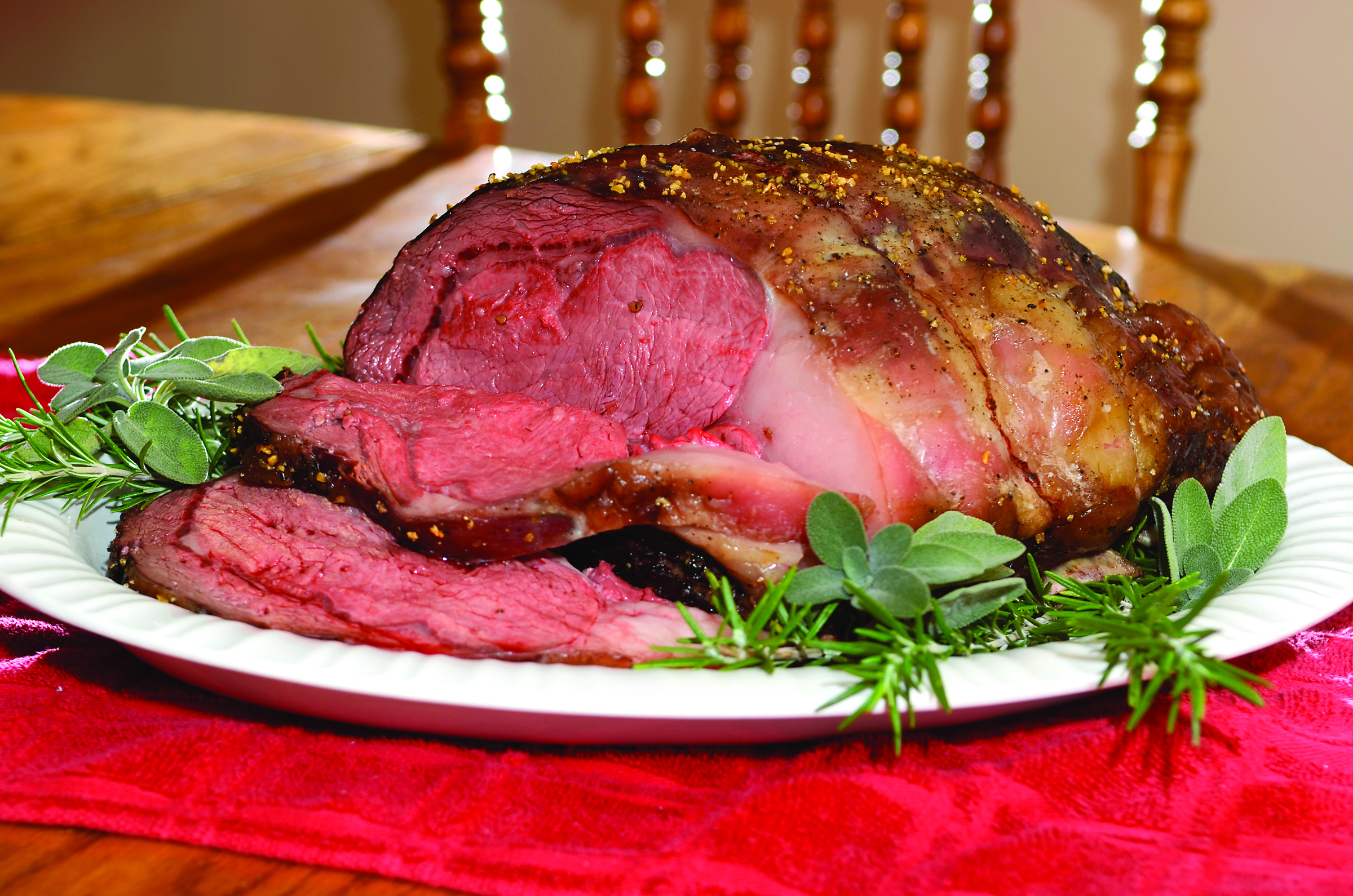BARRY SAYS: If there has been a theme with our monthly foray in the kitchen, it has been the idea that we should try new things. While we occasionally venture far afield, for the most part each food adventure has been rooted in something familiar that we (read: Kelley) alter in a subtle way.
When Kelley said her oldest son, Jeff Soder, a lieutenant with the Chattanooga Fire Department, offered to dry-age and then roast a prime rib, we were thrilled.
In keeping with the "keep it simple" theme, the prime rib was served with fresh green beans and oven-roasted potatoes cooked with fresh rosemary from the garden. Everything was great, though we all agreed that a few more spices and maybe a slightly different method for introducing them would help for next time.
KELLEY SAYS: I have not had prime rib in years, and I had to go back for seconds. Jeff had a portion of the roast that he didn't cook, and he was going to smoke that piece in a few days. My son enjoys smoking meats and poultry. He has truly mastered this way of cooking.
This would be a perfect main dish for your holiday dinner. If you purchased your roast this week, you would have plenty of time for the aging process (see below) to work its magic.
If you don't want to dry-age the meat, roasting a prime rib is a lot easier than you might think. I would place the meat on a bed of onions, carrots and rosemary, bone side down. I would then slather the fat side with lots of garlic paste and pepper. Go light on the salt. You would still use your meat thermometer to obtain the desired degree of doneness.
For roasts, I like to have an au jus and horseradish sauce. Also, don't throw out the bones. You can cut them into individual ribs and place them in the oven at about 375 F and cook them until they're nice and crispy. The rib meat makes for a wonderful leftover meal.
You can purchase your rib roasts at local grocery stores and butcher shops. They are not going to be cheap, but they are worth the cost. If you do go to the trouble, please make sure that you purchase a roast with at least four bones. Don't get a cut that has been deboned.
Happy holidays from the Courters, and we'll see you in the kitchen next year.
THE PROCESS
Jeff's rib roast consisted of seven bones. He took it out of the package and lightly rinsed it with water and dried it completely. He then placed the roast on a sheet pan and wrapped it in dry paper towels (you could use cheesecloth). You want to remove as much of the moisture as possible from the meat.
He placed the roast in the lower portion of his refrigerator, removing it only three times during the aging process to replace the wet towels with dry ones. You can leave the roast in the fridge for a longer period of time, though his was a total of 11 days. It could have been removed at seven days, but it only gets better with age.
He didn't use any seasoning during the drying process. That is strictly up to the individual. Once he was ready to cook it, however, he used a mixture of crushed garlic, freshly ground black pepper and sea salt. The roast was placed in the oven and roasted slowly at 250 F until an internal meat thermometer registered 138 degrees.
Jeff turned the oven off and let the roast sit until time to carve. The roast will continue to cook a little more, so his was medium-rare to medium.
The result was very tender and delicious. The flavor of the meat came out. However, we both agreed that next time it should be seasoned during the aging process and seasoned with more herbs and garlic during the roasting process. One thing that we didn't expect was the lack of fat in the pan. If you have not done the dry aging, then you have a lot of fat in your roaster that can be used for au jus or Yorkshire pudding.
Horseradish Sauce
1/2 cup mayonnaise
1/4 cup sour cream
1 tablespoon or to taste Worcestershire sauce
1/4 cup jarred horseradish
Mix together and chill until ready to serve.
Contact Barry Courter at bcourter@timesfreepress.com or 423-757-6354.

